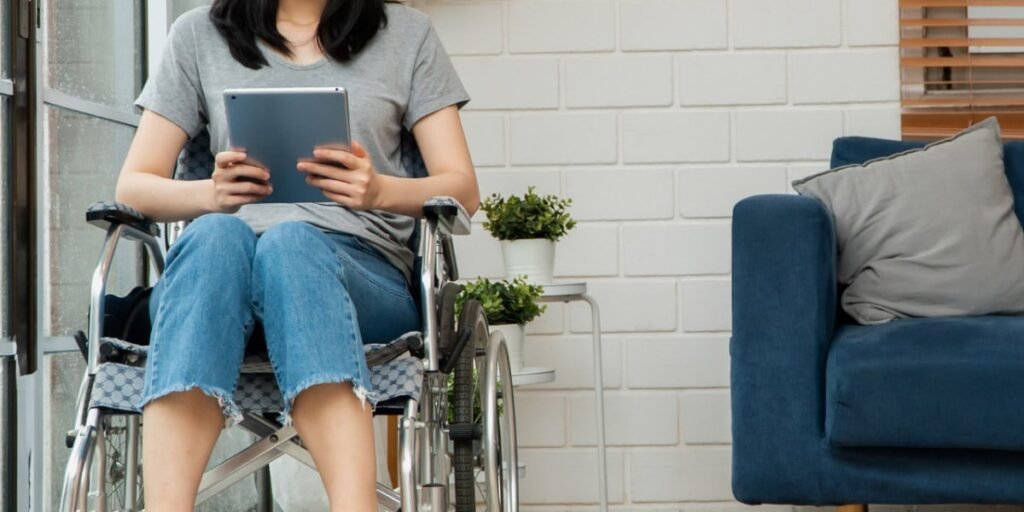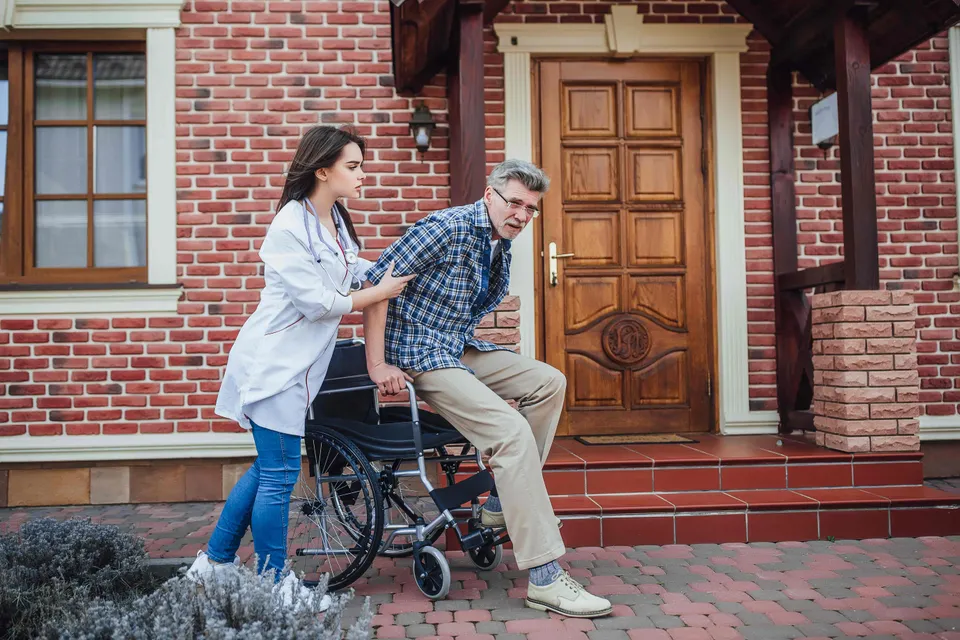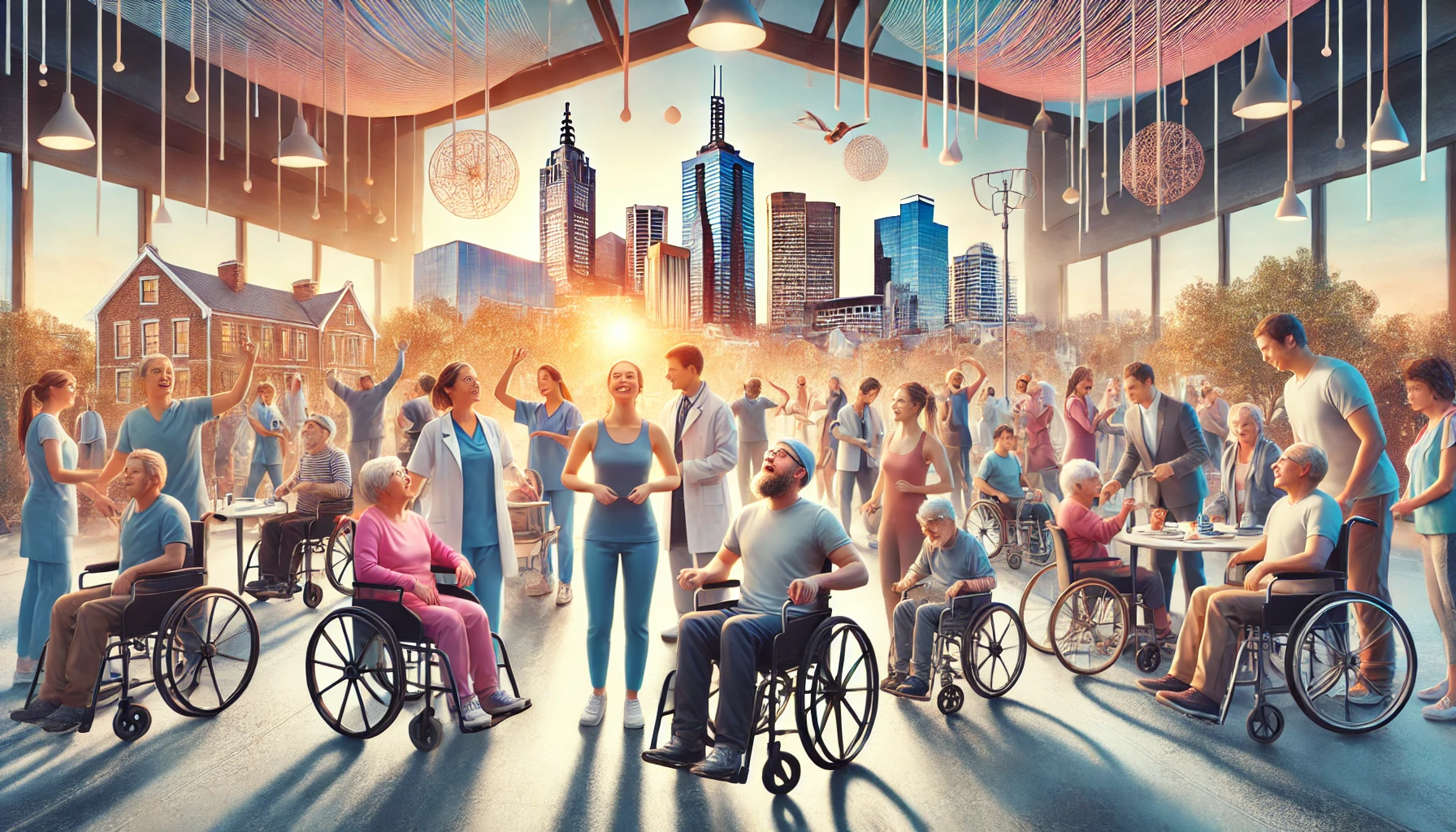How SDA Enhances Lives of NDIS Participants in Melbourne: Empowering Independence and Well-being
Introduction
The National Disability Insurance Scheme (NDIS) in Australia has made monumental strides in enhancing the quality of life for people with disabilities. One of the most impactful aspects of this program is the introduction of Specialist Disability Accommodation (SDA). SDA offers specialized housing options tailored to meet the specific needs of individuals with disabilities, ensuring they have the support and facilities required to live independently. How SDA Enhances Lives of NDIS Participants in Melbourne is more than just a place to live; it’s a transformative opportunity that supports independence, enhances well-being, and fosters personal growth. The city’s diversity, infrastructure, and support systems make it an ideal setting for the delivery of SDA, helping participants access accommodations that match their individual needs.
In this comprehensive guide, we explore how SDA enhances the lives of NDIS participants in Melbourne, covering the types of SDA accommodation available, the positive impacts on participants’ mental and physical health, and the steps to access SDA housing. By understanding these aspects, participants, carers, and other stakeholders can better navigate the SDA system and make informed choices.
What is SDA and How Does It Fit into the NDIS?
Specialist Disability Accommodation (SDA) refers to housing that is specifically designed for people with disabilities who require a high level of support to live independently. It is a crucial part of the NDIS and plays a pivotal role in ensuring that participants have access to housing that meets their needs.
Under the NDIS, SDA is not just a home—it is a carefully crafted living space that facilitates greater autonomy for individuals with disabilities. Whether through physical modifications, accessibility features, or technological enhancements, SDA aims to ensure that participants are empowered to live life on their own terms, with the appropriate levels of support.
NDIS participants can access SDA if they are eligible, and their NDIS plan reflects the need for specialized accommodation. This allows them to access funding for housing that is tailored to their needs, whether that be for mobility, sensory requirements, or high support needs.
How Does SDA Fit into the NDIS?

How SDA Enhances Lives of NDIS Participants in Melbourne is an essential component of the NDIS because it provides more than just accommodation—it addresses the need for independence, comfort, and security. By integrating SDA into the NDIS, participants gain access to a range of housing options that are better equipped to support their daily lives and foster greater self-sufficiency.
Through SDA, the NDIS aims to ensure that participants can live in environments that promote social inclusion, independence, and participation in community life. The provision of SDA also helps reduce reliance on institutional care, ensuring that people with disabilities can live in the community with dignity and respect.
Types of SDA Accommodation Available in Melbourne
SDA accommodation is not a one-size-fits-all model. It comes in various forms, each designed to meet specific needs based on the level of support required by the participant. In Melbourne, NDIS participants have access to a wide range of SDA housing options, which are grouped into three main categories:
- Improved Livability:
This type of accommodation is designed to support individuals with cognitive, psychological, or sensory disabilities. The primary focus is on creating an environment that reduces sensory overload, enhances mobility, and offers greater comfort. Key features of improved livability accommodation include:
- Sensory-friendly designs: This could include soft lighting, calming color schemes, and minimalistic interiors that promote peace and reduce anxiety or overstimulation.
- Adaptive layouts: Rooms and spaces are laid out to ensure easy movement, with special attention to the flow of space to promote greater independence.
- Enhanced acoustics: Soundproofing or noise-reducing features are incorporated to help manage sensory sensitivities.
Improved livability homes are perfect for individuals with autism, intellectual disabilities, or mental health challenges who need an environment that promotes calm and reduces external stressors.
- Fully Accessible:
This category is designed for individuals with physical disabilities who need specialized accommodations to allow them to live independently. Fully accessible homes are wheelchair-friendly and include features such as wider doorways, ramps, accessible bathrooms, and kitchen facilities that are easier to navigate.
The design of fully accessible housing allows for greater mobility, making it easier for participants to carry out daily tasks like cooking, bathing, and cleaning without requiring assistance. This is particularly beneficial for individuals with spinal cord injuries, cerebral palsy, or other physical impairments.
- High Physical Support:
High physical support accommodation is for individuals with complex physical support needs who require a higher level of assistance. These homes are equipped with advanced assistive technologies, such as ceiling hoists, automatic doors, adjustable-height furniture, and specialized bathroom facilities.
High physical support accommodation is ideal for individuals with conditions like multiple sclerosis, acquired brain injuries, or severe mobility impairments. The integration of assistive technologies allows for the highest level of independence while ensuring that support is readily available when needed.
Each of these accommodation types is designed to improve the quality of life for NDIS participants, ensuring that they have access to the right facilities to meet their unique needs.
How SDA Enhances the Lives of NDIS Participants in Melbourne
SDA accommodation plays a significant role in improving the lives of NDIS participants in Melbourne, providing benefits that go beyond just housing. Here are some of the key ways in which SDA enhances the lives of participants:
- Increased Independence:
One of the most notable benefits of SDA is that it empowers NDIS participants to live more independently. With purpose-built features like wheelchair ramps, automated systems, and assistive technologies, participants can manage daily activities like cooking, bathing, and dressing with minimal or no assistance. This increased independence not only improves physical well-being but also boosts self-confidence and a sense of autonomy.
- Improved Mental Health and Well-being:
Having access to a living environment that is tailored to an individual’s needs can have a profound impact on mental health. Participants living in SDA homes are less likely to experience the stress and frustration that can come from navigating inaccessible environments. With safe, secure, and comfortable spaces, participants can focus on their personal well-being, engage in hobbies, and build stronger relationships with others.
- Social Inclusion and Community Engagement:
SDA accommodation helps bridge the gap between individuals with disabilities and the wider community. By providing homes that are accessible, inclusive, and well-equipped, SDA enables participants to engage more freely in social activities and community events. Whether it’s participating in local clubs, attending social gatherings, or simply connecting with friends and family, SDA promotes social inclusion and reduces feelings of isolation.
- Customization and Personalization:
SDA allows for a level of customization and personalization that is often not available in traditional housing. Whether it’s the inclusion of specific assistive devices, the design of the living space, or the ability to modify the environment to meet evolving needs, SDA participants can feel truly at home in their accommodation. This personalization fosters a sense of ownership and pride in one’s living space.
- Comprehensive Support Services:
Many SDA homes come with access to tailored support services that are designed to meet the specific needs of each participant. Whether it’s personal care, medical assistance, or help with daily living tasks, SDA providers in Melbourne often work closely with participants to ensure that they receive the appropriate care and support. These services enable participants to live independently while still having the support they need to thrive.
The Role of SDA in Melbourne’s NDIS Landscape
Melbourne, with its growing population and diverse community, is a city where SDA can make a significant impact. As the NDIS continues to expand and more individuals with disabilities are seeking support, SDA plays an essential role in providing the infrastructure and services that participants need to live independently.
In Melbourne, the demand for SDA is growing, and there is a broad network of providers offering a range of accommodation options. The city’s well-established healthcare system, transport networks, and community resources make it an ideal location for the implementation of SDA, providing participants with access to a wide variety of services and support systems.
How to Access SDA Housing in Melbourne

For NDIS participants in Melbourne, accessing SDA accommodation involves a few simple steps:
- Eligibility:
To access SDA, participants must be eligible for the NDIS and demonstrate that they require specialized accommodation as part of their NDIS plan. Eligibility is determined through an assessment of an individual’s needs and their ability to live independently with support.
- Work with an NDIS Planner:
Once eligibility is confirmed, participants should work with an NDIS planner to create a plan that includes SDA funding. The planner will assess the participant’s specific needs and help determine which type of SDA accommodation is best suited to their requirements.
- Find a Suitable Provider:
Once the NDIS plan has been approved, participants can work with providers to find suitable SDA accommodation. Melbourne has a variety of SDA providers, and it’s important to choose one that offers the type of accommodation required and fits within the participant’s budget and preferences.
- Ongoing Support:
After moving into SDA accommodation, participants will continue to receive support from their providers. This could include regular check-ins, assistance with any necessary modifications to the home, and access to additional services as required.
Conclusion
In conclusion, Specialist Disability Accommodation (SDA) is a game-changer for NDIS participants in Melbourne. It offers much more than just a place to live—it provides a supportive, accessible environment that enhances independence, mental health, and social integration. Through the provision of high-quality, tailored accommodation, SDA helps participants achieve greater autonomy and live fulfilling lives.
As the NDIS continues to grow, the role of SDA will only become more vital in ensuring that individuals with disabilities can access the support they need to live independently, with dignity and respect. For NDIS participants in Melbourne, SDA is truly transforming lives, offering the chance to live in a home that is built with their needs in mind.





Post Comment